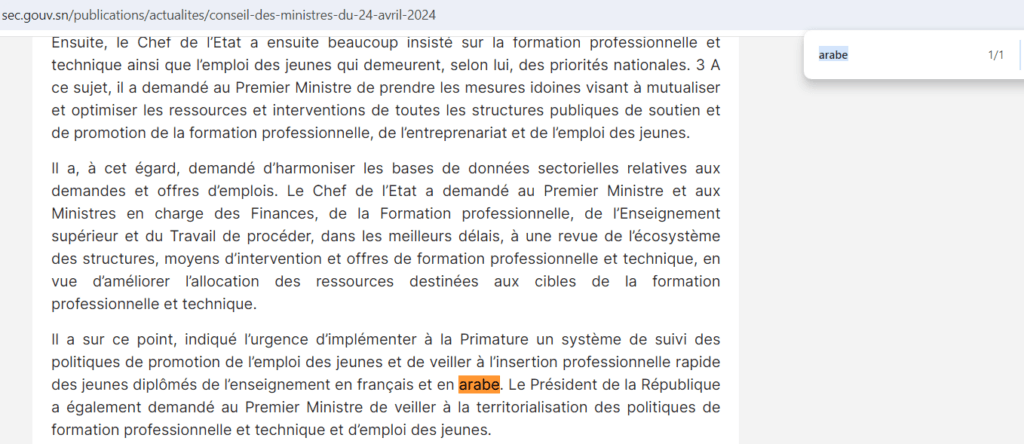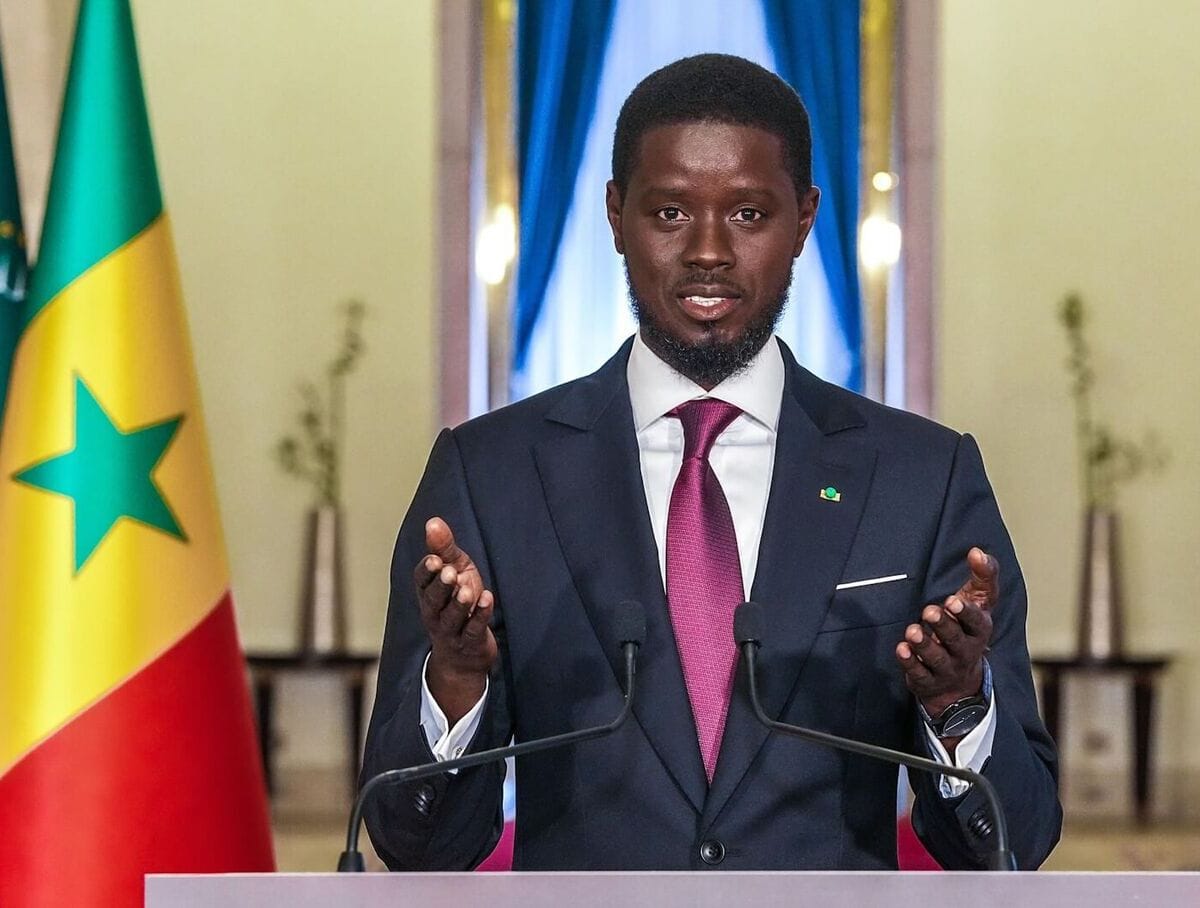At the beginning of May 2024, Russian media and Telegram channels reported that the authorities of the African country had deprived French of the status of the state language, replacing it with Arabic. We decided to check if this is true.
On May 5, news about the change of the official language in Senegal from French to Arabic was published by “Russian newspaper» is the official publication of the Russian government. The publication did not mention any sources, only wrote that this decision was one of the first made by the new leadership of the country. They also wrote about this “Arguments of the week"
Senegal's new president, Bassirou Diomai Faye, officially took office as head of state on April 2. A week earlier, the politician won the election, gaining 54% of the votes. His PASTEF party advocates a pan-African position - the program of a candidate who, shortly before the elections, was in prison on charges of attempted armed rebellion, it says about the need for liberation from French influence. The discussion, however, was primarily about economic rather than cultural dependence.
The earliest Russian-language post in Telegram about the change of the official language in Senegal, which was found “Verified” using the TGStat service, is an entry in the channel SAHWA, published on April 30 at 08:04 Moscow time. As confirmation, the post is accompanied by a screenshot of an entry in X in Arabic, which was posted by the account of an online Arabic language academy located in Saudi Arabia. Since April 29, similar messages began to spread to Arabic And French languages. Website Middle East Monitor wrote about this on April 30 and indicated that the decision was made at the Sunday (that is, held on April 28) meeting of the Council of Ministers.
The status of a particular language in most countries is regulated by law. French has been the only official language in Senegal since the country gained independence from France in 1960. The editorial office is currently active constitution, adopted in 2001, and the first chapter of the basic law states: “The official language of the Republic of Senegal is French. The national languages are Diola, Maninka, Fula, Serer, Soninke, Wolof and any other national language that is codified.” All documentation is conducted in French, including the publication of texts of laws and transcripts of government meetings.
On April 28, contrary to what the media and social media users wrote, there was no meeting of the Senegalese Council of Ministers. Judging by transcript on the government website (available in two versions - in French and English), it took place on April 24, Wednesday. At the meeting, issues of economics and social security were discussed; there was no mention of changing the official language. There is only one mention of the word “Arabic” in the text, in the context of supporting teachers of French and Arabic.

Next meeting took place May 2, after the first publications about the alleged change of the state language. But they also didn’t say anything about Arabic and French.
Finally, the journalists of the fact-checking project Les Observateurs France 24 received a comment from the Senegalese presidential administration, where they were assured that the official language in the country has not changed.
The reports about the break with France, which accompany the statement about the change of language in Rossiyskaya Gazeta, are also exaggerated. At a press conference after the elections, Bassiro Diomai Fay stated, that first of all he will take care of national interests, but assured that his country will remain a “faithful and reliable ally” for all foreign partners. Considering that the former metropolis have to a significant part of Senegalese imports, these words can be interpreted as a reluctance to quarrel with France. This is also important against the backdrop of changes in neighboring countries of West and Central Africa: in recent years Burkina Faso, Mali, the Central African Republic and Niger openly stated about the break with France, intensified cooperation with Russia and began to use the services of mercenaries from the Wagner PMC.
Cover photo: website President of Senegal
Read on topic:
If you find a spelling or grammatical error, please let us know by highlighting the error text and clicking Ctrl+Enter.






